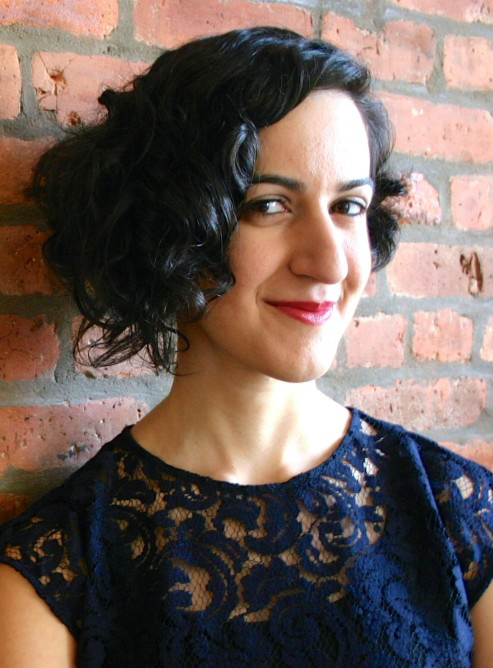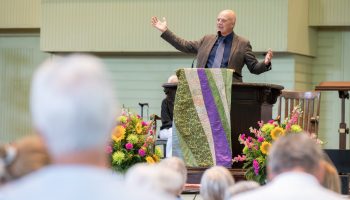
Sigal Samuel primarily writes about the future of consciousness, tracking advances in artificial intelligence and neuroscience and the ethical implications of both.
Now a senior reporter at Vox, Samuel used to be the religion editor at The Atlantic, making her perfectly suited to consider the idea of “Religion’s Intersections: Interdisciplinary Imagination with Science, Technology and AI.”
The intertwining of religion and technology is centuries old, Samuel wrote for Vox last fall, so it should come as no surprise that the more one pays attention to Silicon Valley’s AI discourse, the more one hears echoes of religion.
“That’s because a lot of the excitement about building a superintelligent machine comes down to recycled religious ideas. Most secular technologists who are building AI just don’t recognize that,” Samuel wrote. “These technologists propose cheating death by uploading our minds to the cloud, where we can live digitally for all eternity.
“… And they envision artificial general intelligence … as an endeavor that guarantees human salvation if it goes well, even as it spells doom if it goes badly.”
Those visions of the future are almost identical to those of Christian eschatology, she wrote, and the idea that when our souls go before God (“the perfect decision-maker”), we’ll be guaranteed “heaven if it goes well, but hell if it goes badly.”
Sigal will speak to these intersections at 2 p.m. today in the Hall of Philosophy for the Interfaith Lecture Series.
From medieval Christian theologians, a straight line can be drawn all the way through to the present moment and ideas of futurism, effective altruism, transhumanism, and AI.
“We should understand the history of these ideas — of virtual afterlife as a mode of salvation, say, or moral progress understood as technological progress — so we see that they’re not immutable or inevitable; certain people came up with them at certain times to serve certain purposes, but there are other ideas out there if we want them,” Samuel wrote.
These ideas of an afterlife — virtual or otherwise — boil down to three basic things, she wrote. One, “we may not have much time until life as we know it is over.” So, “we need to place a bet on something that can save us,” and “since the stakes are so high, we should ante up and go all in on our bet.”
“Any student of religion will immediately recognize this for what it is,” Samuel wrote. “(It is) apocalyptic logic.”
In addition to her work on AI, technology and the future, Samuel also writes about how to make the world a better place, for everyone, now — not in some digital or religious afterlife — so when it comes to AI, “we need to decide what kind of salvation we want.”
“If we’re generating our enthusiasm for AI through visions of transcending our earthbound limits and our meat-sack mortality, that will create one kind of societal outcome,” Samuel wrote. “But if we commit to using tech to improve the well-being of this world and these bodies, we can have a different outcome,” and as historian David Noble put it, humanity can “begin to direct our astonishing capabilities toward more worldly and humane ends.”




